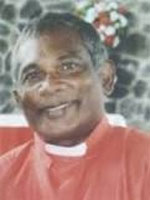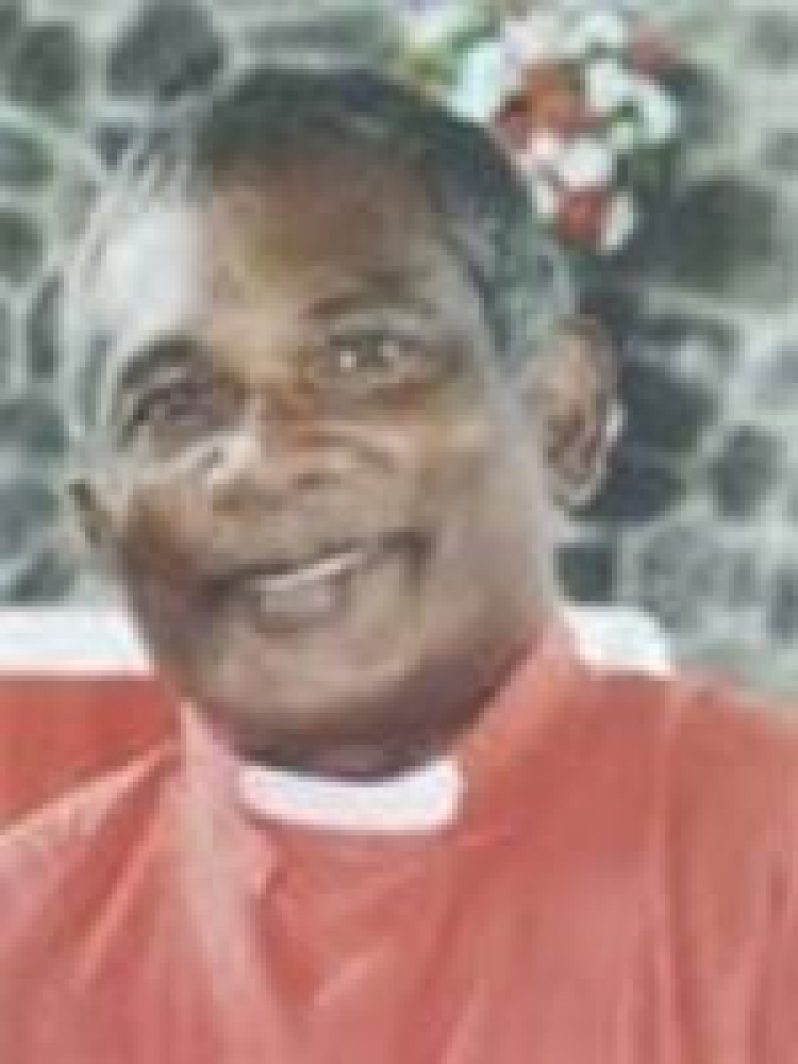(Extract of an interview with Kampta Karran, Georgetown, Guyana, 2002. Karran died in June 2013. He was a writer, editor, anthologist, sociologist, literary enabler, publisher and pastor. His literary contribution, in a major way, helped in the shaping and the preservation of our literary heritage. He edited some profound bits of literature, including
‘AN INTRODUCTION TO THE POETRY OF THE EAST INDIAN DIASPORA’, subtitled ‘A Celebration of Guyanese East Indian Poets 1901 – 1991’; and ‘RACE AND  ETHNICITY IN GUYANA’. Karran also started a magazine, ‘Offerings’, and a poetry prize, ‘The Offerings Annual Poetry Book Award’.)
ETHNICITY IN GUYANA’. Karran also started a magazine, ‘Offerings’, and a poetry prize, ‘The Offerings Annual Poetry Book Award’.)
PP: Kampta, we cannot look at the state of Guyanese Literature today without factoring in your contribution as an innocent, emerging writer; a disgruntled writer; and as a publisher.
KK: First of all, I must thank you for what you are doing for local literature, especially through your two television programmes. Any project that promotes writing is essential for any society; particularly so in a developing society, because, in a sense, our writers value us in words. And in their valuing us in words, they represent us for evaluation.
So, you pick up a piece of work; say, you pick up David Dabydeen’s ‘Counting House’, and you go through that work, and you get a glimpse of what our society was; what the relationship between the slaves and the planters was; what was the relationship between the haves and the have-nots in the 19th Century.
Similarly, you pick up the poetry of Rosetta Kalladeen; there you have her presenting Leguan to us in a new light; even the people of Leguan would read about themselves and see how they are valued.
In a similar way with Edgar Mittelholzer: When he presented the Corentyne to us, and when he presented our history to us, he gave us a chance to re-evaluate who we are: Where we came from, and where we are going.
In a similar way we see writers who left Guyana like David Dabydeen, Sasenarine Persaud. For instance, Persaud gave us a glimpse into writers in exile. So, people like Rosetta Kalladeen; people like Edgar Mittelholzer tell us what our society is like here. People like Dabydeen in ‘Disappearance’ and ‘The Intended’, and Sase in his poetry book, ‘Between the Dash and the Comma’ tell us what the migrant experience is all about.
Dabydeen, in ‘Disappeaance’, gives us a glimpse of the English countryside through the eyes of a migrant. In Sase’s ‘Between the Dash and the Comma’, there are a few poems there where he gave us a glimpse of a writer abroad; of how he sees himself, and how he is seen by others. So, those are some of the things writing does. And any one or any group that promotes writing must be encouraged.
PP: All of this is leading up to the state of Guyana’s Literature and local writing.
KK: Yes, yes! The local writing scene! When I come to Guyana, or when I leave Guyana, I buy books. When I come, the first thing I do is to go into the bookshops; to Austin’s. My favourite bookshop is Universal — I think Mr Holder has a knack for promoting local writers — and I go there and check out what is available, and I buy books and take back overseas. I enjoy doing this. I must say there are some writers that seem to be constantly producing.
Roopnandan Singh comes to mind. Tremendous creative energy! A man who is living in Guyana, where publishing facilities are not available: He takes time out and gets his work done; and he publishes them. And the newspapers are very important to us. I like going through the Stabroek News; I like reading Ian McDonald’s columns because, in a sense, it is keeping the creative spirit alive.
One of my favourite writers is Mahadai Das. I haven’t seen anything from her recently, but when I last spoke with her a few years ago, she was working on a collection dealing with the ant. I read a few of those, and I found them to be remarkably succinct: Lots of heavy imagery, and very enjoyable. I hope I’d find her before I leave and have a few words with her.
PP: Now that you have mentioned Das, let’s turn our attention to other women writers.
KK: Parvati Persaud-Edwards comes to mind, and her collection of poems, ‘Sacred Stones’, which she dedicated to our friend from Guyenterprise [an advertising agency headed by], Vic Insanally. I think that is a tremendously important collection, in a way we saw a woman coming to grips with what society is like, and how Guyana is perceived.
PP: You have been writing a long time, and you have had your fair or unfair share of difficulties getting published. What prompted you to become a publisher, publishing your own work, and the works of other writers?
KK: When I think about writing, my own writing, I always go back to my primary school days, strangely enough. I don’t know what they did to us in primary school — Teacher Doris, Jakey, Bahadur and Mr Carryl. They encouraged us to as we would like to see it, and encouraged us with that free spirit to write; and they guided us with our reading and so on.
PP: Hats off to teachers and for such guidance!
KK: So, I started writing at primary school… That was my primary school; encouraged by my teachers. Then I went to secondary school. That’s where I met your brother, Sase; we did ‘O’ Levels together… Then he went on to Queen’s College, while I stayed on to teach.
I remember at secondary school, I won the prize for writing. But when I went to university, I found that our scholars were not terribly productive in the area of writing. Excellent lecturers and so on! But they never produced this quantum of literature that one would have thought that a university would allow its scholarship to do.
Of course, there was Clive Thomas, internationally recognized scholar; and there was Ken Danns and Iris Sukdeo, who did a wonderful paper on the emergence of a multiracial society. So I was there; and I saw the need to publish a magazine.
There were so many people writing, and there was only one literary magazine around then … And it definitely couldn’t carry your work, because it had its own writers; its own clientele. So when I graduated in 1984, I decided to start a magazine; it was called ‘Offerings’, as you know. It began to encourage people who were not being published locally to contribute to its pages.
And I am happy to say, Sasenarine Persaud was one of those people. I remember ‘Dear Death’, his first short story…
PP: First novel…
KK: Yes! That was a novel! But we carried chapters of that in ‘Offerings’. And I remember another story by Sase: ‘Homecoming’, which, even now when I recall it, brings a tear to my eye. It was about this young man who left home and went politicking and drinking and gallivanting while his father was at home dying, hoping that he would return to the land… Parvati [Persaud Edwards] also published in ‘Offerings’…
I remember another writer, Steve Persaud, who wrote a wonderful poem… And I remember this line, ‘Why crawl, when it is easier to fly’. Wonderful line! And so on and so on… I filled that need by offering that outlet, ‘Offerings’. So that was the birth of ‘Offerings’. (To be continued…)
(To respond to this author, either call him on (592) 226-0065 or send him an email: oraltradition2002@yahoo.com)




.png)









